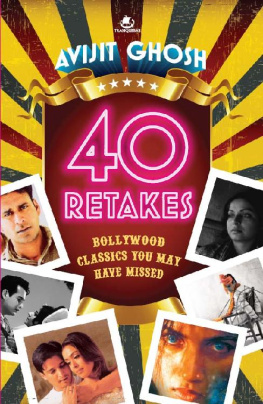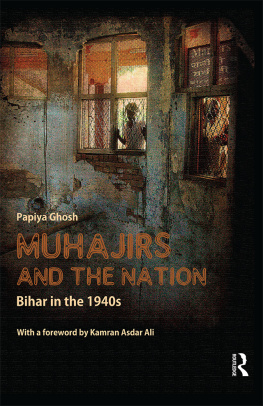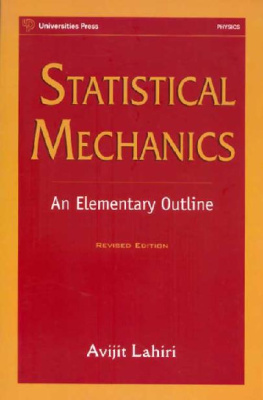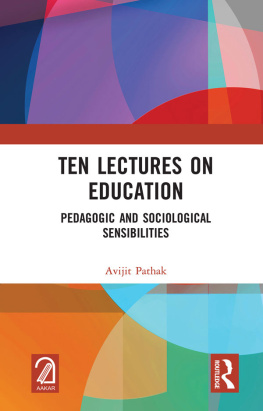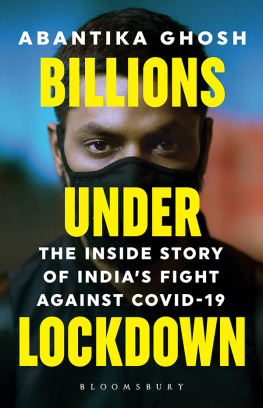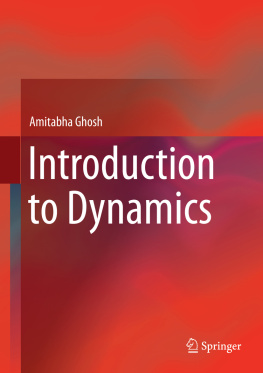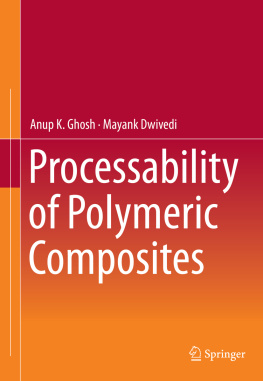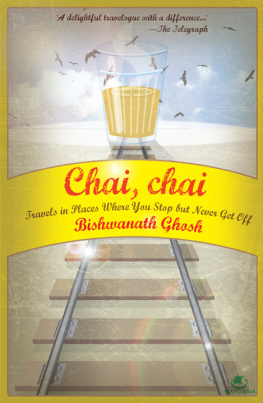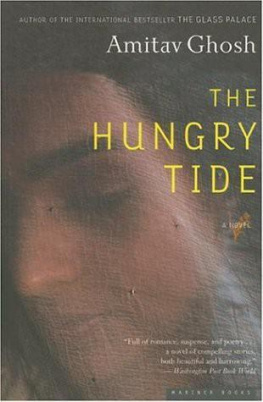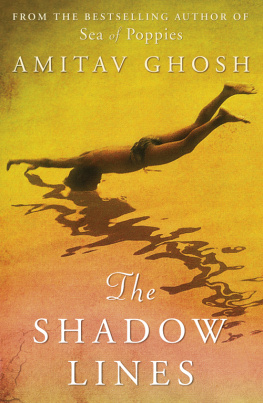Avijit Ghosh - 40 Retakes
Here you can read online Avijit Ghosh - 40 Retakes full text of the book (entire story) in english for free. Download pdf and epub, get meaning, cover and reviews about this ebook. year: 2013, publisher: Tranquebar, genre: Non-fiction. Description of the work, (preface) as well as reviews are available. Best literature library LitArk.com created for fans of good reading and offers a wide selection of genres:
Romance novel
Science fiction
Adventure
Detective
Science
History
Home and family
Prose
Art
Politics
Computer
Non-fiction
Religion
Business
Children
Humor
Choose a favorite category and find really read worthwhile books. Enjoy immersion in the world of imagination, feel the emotions of the characters or learn something new for yourself, make an fascinating discovery.
- Book:40 Retakes
- Author:
- Publisher:Tranquebar
- Genre:
- Year:2013
- Rating:4 / 5
- Favourites:Add to favourites
- Your mark:
- 80
- 1
- 2
- 3
- 4
- 5
40 Retakes: summary, description and annotation
We offer to read an annotation, description, summary or preface (depends on what the author of the book "40 Retakes" wrote himself). If you haven't found the necessary information about the book — write in the comments, we will try to find it.
40 Retakes — read online for free the complete book (whole text) full work
Below is the text of the book, divided by pages. System saving the place of the last page read, allows you to conveniently read the book "40 Retakes" online for free, without having to search again every time where you left off. Put a bookmark, and you can go to the page where you finished reading at any time.
Font size:
Interval:
Bookmark:

40 RETAKES: Bollywood Classics You May Have Missed
A vijit Ghosh was born in Agartala, capital of the tiny north-eastern state of Tripura and grew up loitering in the small towns of Bihar and Jharkhand: Dumka, Giridih, Arrah and Ranchi. Spending many of his college hours in cinema halls, he graduated in history from St Xaviers College, Ranchi and filched countless cups of canteen tea from friends on his way to earning MA and M Phil degrees in modern history from Jawaharlal Nehru University.
A journalist and a husband for the past twenty years, he has worked with the Press Trust of India, The Pioneer (the best days of his life, some months he even worked for half pay), The Telegraph and is now employed as a senior editor with The Times of India. He has also been a visiting fellow at the Center for the Advanced Study of India at the University of Pennsylvania.
Addicted to cinema and sports, he writes regularly on these subjects. He is the author of the novel, Bandicoots in the Moonlight (Penguin), which suffered the fate of an honourable art movie: a minor critical success and a major commercial failure. His second book, Cinema Bhojpuri (also Penguin), earned him the Special Mention for Best Writing on Cinema in the 58th National Film Awards.
Avijit lives in Delhi with his mother, wife and two kids, Abhishek and Diya. He eagerly awaits your feedback on any of the three books he has written at

TRANQUEBAR PRESS
An imprint of westland ltd
61 Silverline Building, 2nd Floor, Alapakkam Main Road, Maduravoyal, Chennai 6000 095
No. 38/10 (New No.5), Raghava Nagar, New Timber Yard Layout, Bangalore 560 026
93, 1st Floor, Sham Lal Road, Daryaganj New Delhi 110 002
First published in TRANQUEBAR PRESS
by westland ltd 2013
First e-book edition: 2013
Copyright Avijit Ghosh 2013
All rights reserved
ISBN 978-93-83260-31-7
Typeset by Ram Das Lal
This book is sold subject to the condition that it shall not by way of trade or otherwise, be lent, resold, hired out, circulated, and no reproduction in any form, in whole or in part (except for brief quotations in critical articles or reviews) may be made without written permission of the publishers.
To Mushi (who I know will read the book one day)
and to Tintin (who might pore over the pictures,
if he ever loses the smartphone)
Contents
Foreword
H ave you heard of Man Ka Meet? The 1968 movie, produced by actor Sunil Dutt to launch his younger brother Som Duttwhich vanished without a trace? So did Dutt junior. But in my ordinary life, Man Ka Meet holds an extraordinary place. It is the first movie I saw; not the entire thing, just thirty minutes of it.
We lived in a small town in erstwhile south Bihar called Giridih. My father used to be an officer with the state intelligence department, a plainclothes cop. One evening, when he had taken me out for a Coca-Cola, he got chatting with the manager of a movie theatre whose name I can no longer recall. I was getting bored. So he asked the manager to get me a seat inside the theatre. Even today I can picture myself in the dark auditorium with the magical world of moving pictures coming alive before my eyes for the first time. It was a gamechanging moment. I remember Som Dutt jumping up and down a train chased by a bunch of boisterous girls in tight slacks who sang, Ek anari junglee janwar budtameez deewana. I was thoroughly enjoying myself when I was asked to step out because my fathers meeting was over. But the die had been cast. I was hooked on movies forever.
Now, films consume me. Almost every second day I watch at least one, mostly on television or dvd. Movies allow me to think and ruminate. What would have happened to Amitabh Bachchan if Dev Anand had said yes to Zanjeer? What kind of films would Awtar Krishan Kaul (director of the seminal 27 Down) have made had he not drowned trying to save a friend? What sort of impact would K. Asif s Sasta Khoon Mehnga Paani, the magnum opus he abandoned midway, have had on the Hindi film industry? The couple of reels one gets to see of Shabab Ahmeds Film Hi Film are simply mindblowing.
This book, though, isnt about cinematic fantasy; it is rather rooted in reality. It is an attempt to revisit a bunch of special films that either did not get their due or have been largely forgotten. It is an attempt to show, that like fine wine, a movie too is a living thing that constantly evolves over the years.
I record my gratitude to Firoze Rangoonwalla, Shiv Viswanathan, Anil Grover, Suresh Kohli, Susmita Dasgupta, Sidharth Bhatia, D. Shyam Babu, Chandra Bhan Prasad, Nirmal Sharma, Vinay Pandey, Narayani Ganesh, Rakesh Batabyal, and Subodh Verma, for their help and support in the writing of this book.
This is also a suitable occasion to say thanks to some friends and colleagues: Shishir Prashant, Deepika Sahu, Gautam Sidharth, Anuj Kumar, Manoj Mitta, Jagdish Yadav, Chitra Padmanabhan, Namrata Joshi, Anuradha Raman, Samita Bhatia, Pradeep Thakur, Syed Saud Akhtar, Shashi Prasad, Renu Pachauri, Meenakshi Sinha, Kim Arora, Vijay Lokpalli, Ronojoy Sen, CP Surendran, Alok Sinha, Amit Bhattacharya, Aarti Tikoo Singh, Ananth Srinivas, Dhananjay Mahapatra, Malini Sen, Tirna Ray, Sushil Aaron, Shankar Raghuraman, Atul Thakur, Debashish Roy, Devlin Roy. I would like to record my appreciation for Prita Maitra at Westland for editing the manuscript and hammering it into shape. She has been a firm friend in the world of publishing.
To my mother Anjali, sister Bani and my jamai babu, I express my sincerest gratitude. And last, but not the least, this book wouldnt have been complete but for the support and help offered by my wife and first reader-editor Rachna. My gratefulness cannot be expressed in words.
Avijit Ghosh
Introduction
L ike most works of art, films are generally judged by two barometerspopular success and critical acclaim. Failing to achieve either usually condemns them to oblivion. But life isnt black or white. Neither is cinema. The truth remains that good, even great, movies falter at the box office. Sometimes they also fail the critics test. Or vice-versa. Now, as we celebrate 100 years of Indian feature films, this book is an endeavour to draw attention to a bunch of movies that deserve a second look. Some were underfted by critics and failed at the ticket counters when first released. A few were admired by critics, or rewarded at the cash counters but have been forgotten over the years and need to be reintroduced to a new generation of filmgoers.
Consider Footpath (1953), a hard-hitting indictment of soulless capitalism. Director Zia Sarhadys film fell flat at the box office. Even in the biographies of Dilip Kumar, the movie hardly gets the detailed analysis that it deserves. But it remains one of the finest works of the virtuoso actor.
Few have managed to make an engrossing yet educative film on the reproductive rights of women as masterclass director Shyam Benegal does in Hari Bhari (2000). Sadly, the film which profiles the lives of five women in a rural Muslim family in Uttar Pradesh barely made it to the theatres. Antardwand (2010) falls in the same category. Based on the phenomenon of shotgun weddings in Bihar, this movie of stunning authenticity sank without a trace.
Producer-director-actor-writer Chandra Shekhars Cha Cha Cha (1964) is another fascinating film. A box-office success when first released, the film is largely remembered for the memorable compositions of Iqbal Qureshi still played by Vividh Bharati and nostalgia-friendly FM radio stations. But not many of us have actually seen the film and know what is all about.
Next pageFont size:
Interval:
Bookmark:
Similar books «40 Retakes»
Look at similar books to 40 Retakes. We have selected literature similar in name and meaning in the hope of providing readers with more options to find new, interesting, not yet read works.
Discussion, reviews of the book 40 Retakes and just readers' own opinions. Leave your comments, write what you think about the work, its meaning or the main characters. Specify what exactly you liked and what you didn't like, and why you think so.

